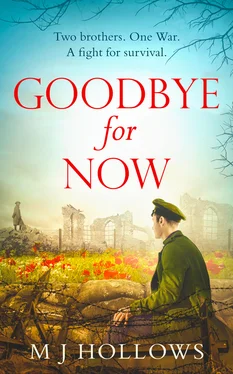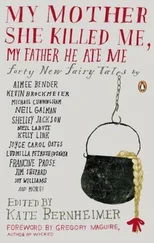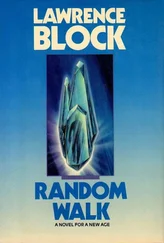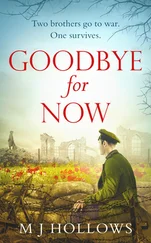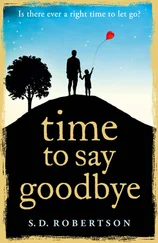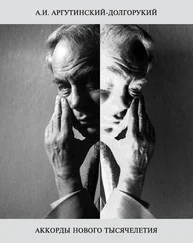‘Swear by Almighty God.’
‘Swear by Almighty God,’ the men replied in chorus.
The call and repeat carried on until every man had all said the final line, ‘so help me God.’
The magistrate went down the line of men handing each the King’s shilling and dismissing them. He got to George and said, ‘This is the King’s shilling. Take it and you are a member of the regiment.’ He pushed a shilling into George’s palm. ‘Take this.’ He then gave him a sheet of paper with his name and the name of the regiment on it. ‘We will tell you when to report for mobilisation. In the meantime, you will attend training drill starting from Monday. Dismissed.’
George and Tom were now members of the King’s Liverpool regiment. The enlistment felt like it had taken hours, stretching George’s confidence to his wits’ end, but in reality it had only been a few minutes. He had expected a sense of something new but he didn’t feel any different. Tom grinned that grin at him and, taking George around the shoulders, said, ‘That’s that then, we’re men now.’ He laughed. ‘Now to go home and wait, lad. I should probably tell my ma too.’
It was done.
Joe had just woken up. He wasn’t sure what time it was, but the sun glared in through the window. Last night at the newspaper had been a late night, editing more and more news about the war, and trying to get his anti-war message in wherever he could without Ed noticing. When he had got home, he was out as soon as his head hit the thin pillow. He hadn’t even heard George leave in the morning. His brother had left before Joe had woken, which was unusual, as Joe was often disturbed by George. They didn’t socialise or talk much – they hadn’t since they were small children. One day, Joe would own his own home and bedroom.
Getting up early and reading was his usual morning pattern, but today he just got dressed. He tripped over George’s boots on his way downstairs. He had done enough reading last night for a few days, and his head was still sore from the concentration.
Halfway down the staircase he heard raised voices coming from the kitchen and stopped.
‘How dare you?’ his mother shouted, just loud enough to be heard through the walls. Joe didn’t hear the reply, mumbled as it was. ‘How dare you?’ his mother shouted again, loud enough to wake the house if anyone had still been sleeping.
There was silence for a few seconds, and Joe tried to relax. He daren’t go further down the stairs, should anyone realise he was there.
‘No, George. Not this time. You shouldn’t have done this.’ The anger in his mother’s voice had more control this time. Then he heard an unexpected voice, that of his Uncle Stephen; a voice he hadn’t heard in some time. He didn’t visit their home often. His uncle was how his parents had met. He and Joe’s father had served together and at a regimental dinner George’s mother and father had been introduced. He had heard the story many times. Joe’s heart raced as he thought of all the possibilities of what they were arguing about. He kept coming back to the same conclusion, and the thought made him sick. He hesitated, one foot on the bottom step and a hand on the banister. He dearly wanted to go upstairs and avoid the conversation, but his curiosity and his concern pulled at him. One day he would have to start confronting things.
‘You’re too young.’
The beating of his heart grew louder in his ears, and he still didn’t hear George’s response. Joe put his other foot on the stair, praying they wouldn’t creak.
‘Hello, Joe. What are you doing?’ enquired a young voice, followed by the click of a closing door. She made him start. He had been so engrossed he hadn’t heard his little sister creep up on him.
‘Shush, Lizzie. Not so loud!’ He waved his hands, but she only smiled in return and came closer. ‘I’m just thinking. Why don’t you run upstairs? And don’t tell anyone you saw me!’
He was getting in the habit of lying recently, and he hated himself for it. If he told her what was happening then she would no doubt tell her parents at some point. She was too young to understand. By now, he could no longer make out much of the conversation in the kitchen. His mother was no longer shouting, but he could feel the tension as she moved around the kitchen. Still, his sister stood and smiled at him, craning her neck to see what he was doing, mimicking him.
‘What are you thinking about? Is it to do with stairs?’
‘It’s not important, Lizzie. Now come along with you, up the stairs. Mum will be calling you down soon, and if you’re not ready she will be upset.’ Again he bent the truth to suit his needs, but Lizzie didn’t need to know what was up – not knowing was better at her age. She would find out soon enough. She stopped smiling and stomped up the stairs, her curls bouncing with each step.
‘Shush,’ he said again, in a whisper up the stairs. He would rather not know himself for now. Once again, he was running away from things. If George had signed up for the army, it would rip the family apart. His sixteen-year-old brother was far too young to be going to war. The thought made Joe sick, and he rested his head against the banister, closing his eyes. No one was old enough to go to war. It didn’t matter who they were. No one should have to kill another or be killed for their country. George was brave, not stupid, but Joe couldn’t help but feel he had made the wrong decision. He felt guilty. Guilty that he had never reached out to his brother, and now it could be too late.
He went back upstairs, leaving the conversation behind. He wanted to be alone with his thoughts. As he walked past one door he could hear Lizzie singing softly to herself and the sound brought a warmth to his heart. She had a sweet voice, the voice of innocence. He re-entered the room that he and his brother shared, the two iron framed beds on each long wall, like a school dormitory. Kicking his shoes off, he fell backwards onto his bed with a creak of springs. A wave of tiredness hit him. He was tired with the world, with the constant conflict. He turned to the bookshelf that ran alongside his bed. His eyes fell on Tolstoy, amongst others. His collection was meagre, gathered from a second-hand bookshop in the city centre with what money he could spare, but the books were his. One day he would have his own library, full of books on any number of subjects. These took pride of place on the shelf, their battered covers only serving to highlight the quality of names presented on them. A couple had been given to him by his teacher, Fenning. They were both philosophy texts, to encourage him to higher thinking. Not today, he thought. Today wasn’t the time to reach such works. He wasn’t in the mood for opening his mind to possibilities and ideology. He was already weary of thought.
His spotted a copy of the Labour Leader . The same issue that he had used to help edit Barnes’s article. He didn’t usually leave the paper out, the writings of Brockway and the rest would not be welcome in this house. His father wouldn’t appreciate them. Even his books were a risk. The newspaper was incriminating evidence when Barnes returned, and if he accused Joe of tampering with his article. Joe didn’t want to think about the possibility now.
It was proving to be a bad kind of day, and it hadn’t even really started yet. He was exhausted from work at the Daily Post , where others were leaving to join the war effort and everyone else had to gather round and work harder. Now he suspected that there was going to be some consequence of his editing of Albert Barnes’s piece. Worst of all, was the news that his brother had signed up to go and fight – the very thing he was trying to convince other boys not to do. There was nothing he could do to stop that now. He could help others, but what good would that do if he couldn’t even help his family? The least he could do was support his brother, give him confidence. He couldn’t stop him going to fight – he would never listen to Joe, he never had – but, short of signing up himself, he could do everything possible to make sure George would come home.
Читать дальше
